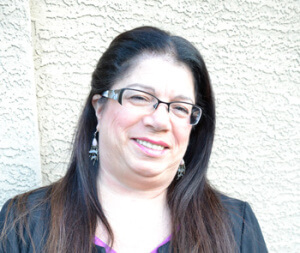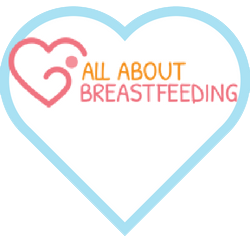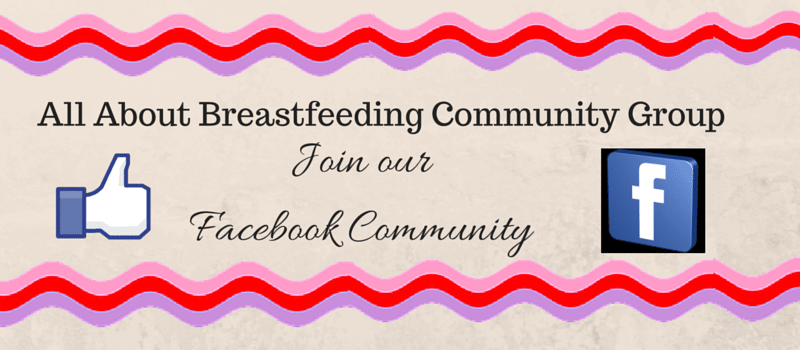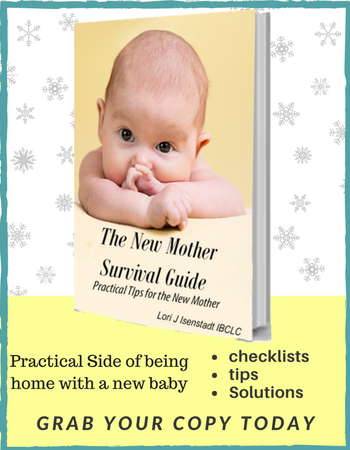Episode 380
I often take the weekend to reflect on all the moms, babies and families I have seen that week. I use the weekend to double up as far as checking up on the families that I am currently working with. If there is someone who has not responded to an email or phone call during the week, I am touching base with them on the weekend. Sometimes it is helpful to have both parents on a phone call because there are moms who are trying to be so strong, that they are not exactly telling me that they are floundering, whether it be with breastfeeding or new motherhood, in general. It is helpful for me to have as much information as I can so I can be as helpful as I need to be. Most of the adults in the household are fairly sleep deprived and having both parents on a phone call means that less will be missed.
Two of the moms that I saw this week, were both discharged from the hospital with a very specific feeding plan. They were both 7 days old when I saw them during our lactation consult. Both parents were following strict rules they were given in the hospital and some of the rules just did not apply. I often can be heard saying: there are some nuggets of truth in what parents are told, but the problem is that most new parents are given the same information even when their situations clearly call for a different discharge feeding plan for their baby.
So, why are moms being given the same standard discharge information? Why are they given information about breastfeeding that is so wrong, so old, so inappropriate, and sometimes, yes, so dangerous for their babies health? It is another one of those things that… yup, you guessed it,, drives me insane.
My goal for today’s show is to reveal to you some of the most common instructions that new mother’s are given and tell you why I agree, or not. My greatest wish is that you have accurate breastfeeding information so that you will be able to know when you are being given inaccurate or questionable breastfeeding advice.
I will begin by saying that for the purpose of this discussion, I am referring to the full term, healthy baby and mom. I fully agree that it is very helpful to know about the benefits of breastfeeding. It is important for you to learn about the basics of breastfeeding, position and latch. I will also say that this really and truly is the very, very basics of basic information.
So many parents tell me that they have a certain amount of fears and concerns about the early days of breastfeeding. Just like when we learn anything else, we all need to have an educator who knows their stuff, can help build our confidence and is able to teach us what we need to know in a relatable format that is easy to understand. We all want to leave a class saying to ourselves: I can do this! This is just some of the benefits you will get when you register for the class at: aabreastfeeding.com/breastfeedingclass.
I want all parents to know the following:
Ensure that your baby has an excellent latch.
Ensure that breastfeeding is not hurting.
Ensure that you know the difference between nutritive and non-nutritive sucking.
Ensure that you know how to tell when your baby is actually transferring milk or how to tell when your baby is just hanging out or sleeping.
Ensure that you know what to expect as far as feeding frequency and output for a newborn is the very first week.
Lastly, I like to ensure that every parent knows how to make sure their baby has a good feeding, every single feeding and if it is not milk directly from the breast, then to take in expressed breastmilk from the mom or donor milk from another mom and if that is not available, to feed them formula.
I know this may sound like simple advice… to make sure your baby has a good feeding every feeding. However, this can be quite confusing to new parents. As IBCLCs, we see way too many babies who are not being well fed. We find that parents are not always given the proper information. Sometimes they are given the proper information, however, those instructions were good for the day they were given and perhaps for the next day, but the advice that was helpful 3 days ago, does not apply once your baby is a week old.
A classic example of this is exactly what happened to the 2 mothers I saw this week.
Babies need to feed for 10 minutes on each side.
One of the things They were taught to end all breastfeedings after 10 minutes on each side as this is how long it takes for their babies to get a full feeding and anything after that, they are being used as a pacifier. Now to a newbie, I have to say, that If I knew very little about lactation, it makes sense to me. and it made sense to both of these moms.
So, each one of the moms have been cutting their babies off after 10 minutes on each side. Some of the times the babies seem to be happy, other times their babies will just not settle down. When asked what they do to help settle their babies down, I get a variety of common answers:
Well, I know you are not suppose to do this, but the only thing that helps is a pacifier. OR, my baby really likes being swaddled and this helps… but only as long as I am holding her. Some parents are trying the swings they have in their homes, they are trying music and vibration to calm their babies down and they have some success with these tactics and other t imes nothing seems to work.
When I ask what happens if they try and put their babies back to the breast, I get the same answer. Well, their baby was one feeding, so it can’t be that, they must be gassy, colicky, overwhelmed, just need help going to sleep, perhaps they are overtired.
Any one of these answers could very well be true. And I do not hesitate to tell parents this. I also do not hesitate to encourage them to put their babies back to breast. Most parents are surprised when I tell them this, some parents respond by saying: ya think so,, okay, let’s give it a whirl. Other parents respond by saying they would rather not because they are afraid of:
Over feeding their baby
teaching them that every time they cry they will get food and that is not what they want to teach their babies.
Because this is a very, very, very common problem, I take the time in my class to explain the details of newborn feeds and volume. Every single person who takes my class understands how the breasts make milk, breast milk storage capacity, exactly what is in their milk and that it is almost 90% water and that when your baby is crying for more time at breast it could be because they, yes, had a good meal, but are now thirsty. Just like us, we could have had a very delightful meal, be quite full, even overly full, stuffed to the gills, but then are so thirsty, we drink a nice glass of water.
Once parents understand this, they will never fall for so called experts telling them to only feed a baby on each side for a specific amount of minutes. They have learned that not all babies can get the same amount in the same time at breast. They have also learned that babies get thirsty too and their milk is loaded with exactly what their baby needs and to never deny them more food or water just because they are afraid of over feeding or teaching them that when they cry they will always get fed. I want parents to know that actually, if that is why their baby is crying, they need to then feed them. If it is hydration they need, a pacifier or a good swaddle just will not cut it.
One of our fun sayings as lactation consultants is that babies cannot tell time. Why on earth some providers are telling moms that their babies should feed for a specific amount of minutes is beyond me. This is totally false information and really, really bad information. When I ask providers how do they know babies get all they need in 10 minutes at the breast, noone can ever tell me a good enough answer. I have gone so far as to ask them for the research that shows this, and guess what, in 25 years, I have yet to have anyone show me this research.
When moms ask me, well then, how long should I let my baby stay there for… as the big thing is for moms to say that they don’t want their baby to use them as a pacifier. My answer is always:
Concentrate on learning the signs of active sucking and swallowing. Once your baby is no longer doing so, that is when they are pretty much done. For some reason, parents are starting off wanting to be sure there baby does not use them as a pacifier. While I can appreciate this, I move the conversation to educating about proper position, latch, active sucking.
In addition to this being very common, but very poor advice given to new parents, there are other things to worry about.
Let’s go over some other commonly given poor advise.
The first 24 hours:
Wake your baby up every 2 hours for a breastfeeding.
Babies do not need to eat every 2 hours the first 24 hours. As a matter of fact, it is common for them to have perhaps 3-4 feedings during this time period. Now here is the catch. The 3-4 feedings need to be good ones in which there is no breast or nipple pain and in which a majority of the babies time spent at breast is in the actively sucking phase.
Once your baby is 24 hours old, they now have shifted from only 3-4 feedings, to needing closer to 7-9 feedings every single day, at least for the next several months. Most parents are not told this and by the time I meet with them, they are so incredibly sleep deprived from having 11-12 feedings and working hard to wake their babies up and keep them awake during feedings.
Babies always must feed from both sides for every feeding:
We definitely encourage moms to offer the other side for all feedings because the early days of breastfeeding are all about building a good milk supply to meet your babies needs. This tends to happen the best when there is frequent and efficient milk removal.
While we encourage you to always offer the other side for all feedings in the early days, some babies just do not have an interest. It is important to note that when we say to encourage is to give your baby a few minutes to burp, perhaps a diaper change to help rouse them, and then offer it to them. If they just don’t want to, then don’t keep heavily pushing your baby to take the second side. A well fed baby will let you know when they are hungry.
I have seen some mothers who have an amazing volume of colostrum. Their babies latch on beautiful, have lots of nutritive sucking, and truly can get enough in 10 minutes. By the time they are 4 days old, one side is not enough and they are definitely wanting both sides for most feedings. Other babies have moms who have just enough colostrum and their babies spend a longer time at the breast to get the same volume as the mom who has an abundant supply, or perhaps they want even more than the next baby got for that particular feeding.
I hear this one a lot when moms give birth to lovely 9 pounders or more:
You will need to top off every breastfeeding with some formula. You have a big baby and it will take a while for you to build up your supply to meet his needs. Moms are automatically told that if there baby does not get enough that they will have blood sugar problems and may get jaundiced.
Of course this scares most new parents. I would be too! These are all legitimate concerns and ones that are not ignored by myself or other IBCLCs.
Again, assuming that you have given birth to a healthy full term baby and you have no risk factors for difficulty with breastfeeding or milk supply, I would like to assume that your body is going to make enough milk for your baby. With excellent position and latch techniques and knowledge of nutritive vs. non-nutritive sucking, you will be able to tell if your baby is having a good feeding. If you are keeping your baby close to you, or skin to skin, you will see their feeding cues and they will get fed enough so they do not become jaundiced or have low blood sugar. The basic keys to preventing jaundice with healthy full term babies is lots of food – which means frequent breastfeedings. Access to the breast whenever they want it.
I could often be heard asking the moms nurse or doctor if there was any other reason, any medical reason, that they can tell me why the baby should be topped off with formula or is it just because he is a big baby.
The usual responses are: well, yes, he is a big baby and until her milk comes in, we feel the baby needs more than just the breast.
I also hear, well we are concerned about the babies blood sugar levels and don’t want them to get into the danger zone. This is totally a legitimate concern for all newborns. However, I ask them,, well how do you know that the baby did not get enough at breast if you are automatically topping them off? Also, exactly how much milk do they need to keep their blood sugar levels stable. Also, why not supplement with some expressed breastmilk if you are not sure?
All of this usually falls on deaf ears quite frankly. Unless they are measuring intake at breast, they don’t know how much baby is getting. If they don’t know what they are getting directly from the breast, how are they to know how much to top off with? Remember, they are not topping off just so your baby is full. They are not topping off because they have checked the levels and they are too low or too high. In the case that I presented, their sole reasons for topping off is for prevention. Under normal circumstances and with no medical reason to do so, this is poor information which can definitely lead to all kinds of difficulty with breastfeeding. Babies who start refusing to breastfeed and moms not making enough milk.
If your baby has been monitered and tests show your baby needs additional milk, then you do have choices other than a bottle of formula. Your expressed breastmilk which contains all the complex sugars your baby needs, should always be the first choice and donated human milk next and formula the last choice. To help with stabilizing blood sugar levels, keep your baby skin to skin as this has been shown to help keep blood sugar levels from dropping.
Pump both sides for 15 minutes after each breastfeeding to keep from getting engorged.
Engorgement is basically when you breasts become very hard, they hurt and you often have lumps or knots in them. To tell a mom to automatically pump after each feeding is very, very bad advice. Why? Because, believe it or not, this advice which is meant to prevent engorgement, is often a common reason of exactly how a mom did become engorged. This poor advice caused engorgement when it did not need to happen. You see why this just drives me insane???
Since we know that engorgement is more likely when:
parents are feeding their babies on a schedule. the clock lets them know when to feed the baby.
when parents are timing their babies at the breast.
when the latch is less than ideal and the transfer is not good.
when only allowing their baby to feed from one side.
when pumping after breastfeedings
So, rather than giving poor advice which actually causes the very problem yu were trying to avoid, it makes much sense to me to spend time with moms to make sure moms have an excellent latch, how to know when your baby is hungry, is transferring milk well, is done with a feeding. This is what is missed being taught in many classes and on many hospital maternity floors.
The big take aways from todays show are:
Do not buy into the waking your baby up every 2 hours on their first day of life. Most babies do not eat 12 times a day, and definitely not even half of that on their first day of life. Focus on good latch, active sucking and swallowing, following your babies cues and educate yourself on what is normal.
Allow your baby to stay at breast as long as they are actively sucking and never remove them just because someone told you they should be done in a certain time period. This is false information. And also remember how your habits are. You can be very full and still want something to drink.
Lastly, please be sure that there is a very good medical reason that you have been given before you begin supplementing your baby for no reason other then they are just a big baby. Please know that I am quite adamant about supplementing a baby when the situation calls for it.
Your Online Breastfeeding Class
Learn how to breastfeed – Be comfortable. Be confident.
The learning continues well beyond the average breastfeeding basics class that is 60-90 minutes. In this class, we have over 15 hours of audio lessons, combined with many hours of videos to help support what you are learning. We cover breastfeeding and medication safety, what to do if your baby does not latch on, common breastfeeding challenges, tongue tie, premature babies, building a good supply, returning to work and pumping. Take a look at the list below and follow the link to the class page so you can see more specifics of what is covered. I want to ensure that we got you covered and that you have great support well beyond the newborn days.
- Using your pregnancy time to prepare for breastfeeding
- Tips on how to prepare your home for a newborn
- Specific details about the first 24 hours after birth.
- Exactly what to expect the first two weeks after birth
- What can you do if your baby is not latching on
- Common and not so common breastfeeding challenges
- What you can expect over the next few months
- Returning to work as a breastfeeding/pumping mom
- Pumping and storing your milk
- When to begin pumping and building your freezer stash
- How to make a smooth transition to postpartum life
- Lessons dedicated to partners and breastfeeding knowledge.
- Breastfeeding and the 1 year old
- Breastfeeding the toddler and beyond
- Tandem nursing
- Breastfeeding through a pregnancy
- Medication and mother’s milk
- Weaning
Once you register for the class, you have immediate access to:
- Audio Lessons
- Videos
- Educational handouts
- Helpful checklists
- Our “members only” group
- Weekly group LIVE Q&A sessions
Gain confidence in breastfeeding.
Expert advice from Lori J. Isenstadt, IBCLC who has over 25 years of experience in maternal health and lactation. I will help you navigate the ins and outs of breastfeeding.
Listen anywhere and anytime. Imagine not having to sit in a classroom or stare at a screen. You can learn all about breastfeeding while going for a walk, driving to work or running errands, traveling on a plane, train or bus. Because you can download the audios, learning is easy and convenient. Get ready to learn anytime whenever it’s convenient for you and your partner. You can be cooking dinner together and listening to the class. Perhaps relaxing together in the evening in your comfy clothes. You can learn together. Easy access to all class materials. Your class never expires. You’ll be able to listen and download the materials at your convenience.
You are not alone!
Once you are a student in the breastfeeding class, you have regular access to ongoing support for the whole time you are breastfeeding. You can have your questions answered by Lori J. Isenstadt, IBCLC, in our private group as well as our weekly live Q & A sessions. Just check out the Bonuses below to see how I provide you with ongoing support..
Exclusive Bonus #1
Immediate access to a private group for class students only. I will be answering your questions 5 days a week.
Exclusive Bonus #2
Invitation to join our weekly Q & A session with Lori and other students.
Exclusive Bonus #3
Need additional help? *25% discount off a private consult – for students only.
*If you are in the Phoenix metro area. use this link to schedule your Office or Home lactation consult.
*If you are out of the area, use this link to schedule a Skype call
Do you have a question about the class before you purchase? Send it to – aabreastfeeding@hotmail.com
 Register for the Breastfeeding class
Register for the Breastfeeding class
http://www.aabreastfeeding.com/breastfeedingclass
Additional ways to connect with me:
Like us on Facebook HERE:
http://bit.ly/2dNPlsC
Follow us on Twitter HERE:
@breastfeedingaz
http://bit.ly/2BfEIJ2
Follow us on Pinterest HERE:
https://www.pinterest.com/lorijisenstadt
Subscribe on iTunes the All About Breastfeeding show HERE:
https://apple.co/2FJGwsV
Lori J. Isenstadt, IBCLC
 Lori Jill Isenstadt, IBCLC is a huge breastfeeding supporter. She has spent much of her adult life working in the maternal health field. Once she became turned on to birth and became a childbirth educator, there was no stopping her love of working with families during their childbearing years. Lori became a Birth doula and a Postpartum doula and soon became a lactation consultant. She has been helping moms and babies with breastfeeding for over 25 years. Lori founded her private practice, All About Breastfeeding where she meets with moms one on one to help solve their breastfeeding challenges. She is an international speaker, book author and the host of the popular itunes podcast, All About Breastfeeding, the place where the girls hang out. You can reach Lori by email at: [email protected] or contact her via her website: allaboutbreastfeeding.biz/contact
Lori Jill Isenstadt, IBCLC is a huge breastfeeding supporter. She has spent much of her adult life working in the maternal health field. Once she became turned on to birth and became a childbirth educator, there was no stopping her love of working with families during their childbearing years. Lori became a Birth doula and a Postpartum doula and soon became a lactation consultant. She has been helping moms and babies with breastfeeding for over 25 years. Lori founded her private practice, All About Breastfeeding where she meets with moms one on one to help solve their breastfeeding challenges. She is an international speaker, book author and the host of the popular itunes podcast, All About Breastfeeding, the place where the girls hang out. You can reach Lori by email at: [email protected] or contact her via her website: allaboutbreastfeeding.biz/contact

Submit a comment
your email address will not be published








